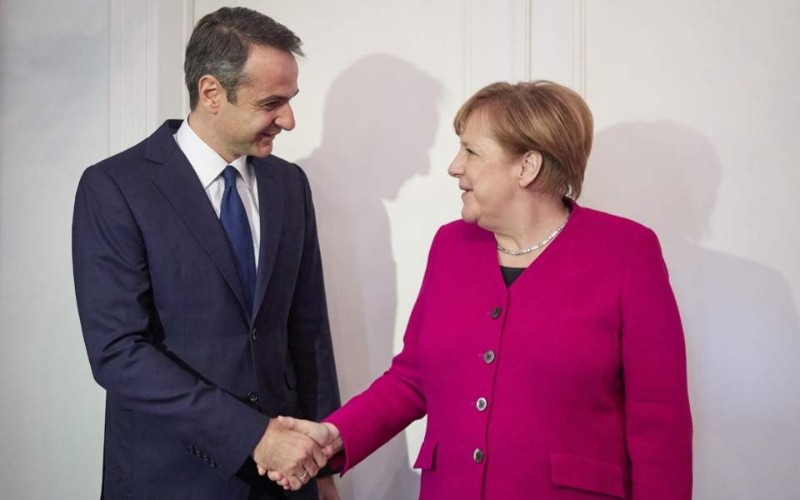The Prespa Agreement a millstone around Mitsotakis’ neck in Europe

Following New Democracy’s election victory and the assumption of power by Kyriakos Mitsotakis in July, the out-of-door narrative of the new government was delimited. Firstly, we inform Europeans of the government’s plan and then we go on to gain Greece’s lost credibility.
From a semantic point of view, Paris and Berlin, as the dominant capitals of decision-making in the European Union, should be the target for the Greek Prime Minister to make a visit, so that his credentials can also be attributed; As it happened.
Two visits, however, that were set up quickly, without much plan and substance, while both executives from Champs Elysées and the Chancellery made discreet speeches about the unbearable pressure they received, in order for the Greek Prime Minister’s meeting with the French President and the German Chancellor to be realized. Kyriakos Mitsotakis’ and his staff’s goal at the Thessaloniki International Exhibition is to show the new government’s acceptance by Europe’s “royalty”.
Yet if a bona fide observer considers these trips to be imperative, then why the trip to The Hague, which was scheduled to be a two-day visit, with contacts with investors included, suddenly became a one-day trip, and so far there is only one meeting with Mark Rutte listed, alongside a visit to an innovation hub?
New Democracy’s and Kyriakos Mitsotakis’ image are not the best in the EU. The Prespa Agreement, an achievement that belongs to the Alexis Tsipras government and to Nikos Kotzias, is still the Achilles heel of the new Greek Prime Minister, and will continue to be for a long time. Those who know people and facts in Brussels speak cautiously and skeptically about the new Greek government and the Greek Prime Minister.
Europeans neither have forgotten nor will soon forget the attitude of Kyriakos Mitsotakis’ New Democracy towards the agreement between Greece and North Macedonia. Although Macron appeared kind to the Greek Prime Minister and made no reference to North Macedonia, Angela Merkel spoke directly at the joint press conference on the necessary European perspective of North Macedonia.
The Government’s first moves on Greece’s international relations and foreign policy seem jarring and unplanned. International Relations and Diplomacy is not a public relations and communication game. It is the cornerstone of government policy.
The issues discussed in Kyriakos Mitsotakis’ talks with Macron and Merkel, which were short of a working visit and a formal visit, could be raised again at the October Summit. This is where they are said and discussed. The official visits have a comprehensive agenda, the ministers responsible of the issues to be discussed are included, and at the end of the talks the appropriate statements will also be made. Surprisingly, the statements in Paris were made immediately after the reception in Champs Elysées.
In conclusion, two very important visits were “burned” in the altar of communication. It is difficult for Kyriakos Mitsotakis to accept both Macron and Merkel for official visits in the immediate future, where an agenda of bilateral cooperation issues might also exist.
There are some who ill-advised the Greek Prime Minister and thus “sacrificed” visits that could have significant effects on the international scene for Greece. In addition, the Foreign Ministry’s absence from these visits rather natural raises questions and discredits Greek diplomacy.
If these trips and contacts’ purpose is to gain lost credibility in Europe by Kyriakos Mitsotakis, they are executed in the wrong way and send the wrong messages both at home and abroad.
Spiros Sideris
ibna